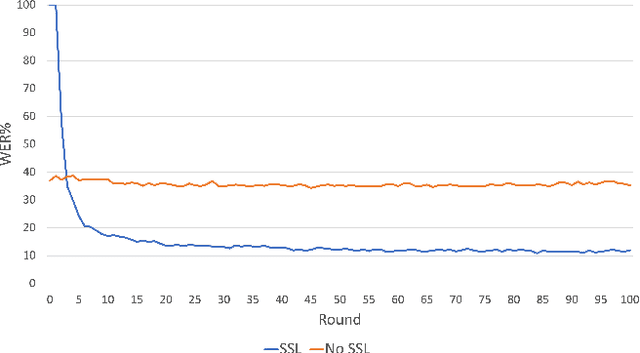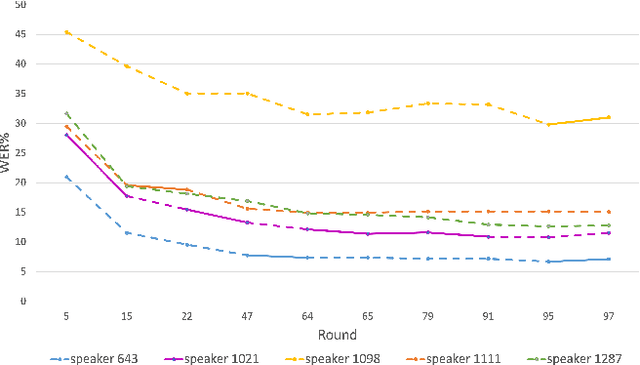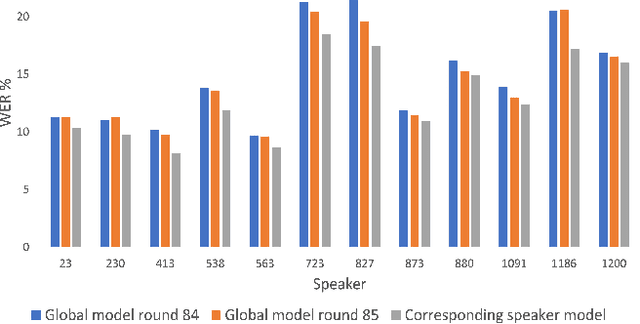Federated Learning for ASR based on Wav2vec 2.0
Paper and Code
Feb 20, 2023



This paper presents a study on the use of federated learning to train an ASR model based on a wav2vec 2.0 model pre-trained by self supervision. Carried out on the well-known TED-LIUM 3 dataset, our experiments show that such a model can obtain, with no use of a language model, a word error rate of 10.92% on the official TED-LIUM 3 test set, without sharing any data from the different users. We also analyse the ASR performance for speakers depending to their participation to the federated learning. Since federated learning was first introduced for privacy purposes, we also measure its ability to protect speaker identity. To do that, we exploit an approach to analyze information contained in exchanged models based on a neural network footprint on an indicator dataset. This analysis is made layer-wise and shows which layers in an exchanged wav2vec 2.0 based model bring the speaker identity information.
 Add to Chrome
Add to Chrome Add to Firefox
Add to Firefox Add to Edge
Add to Edge